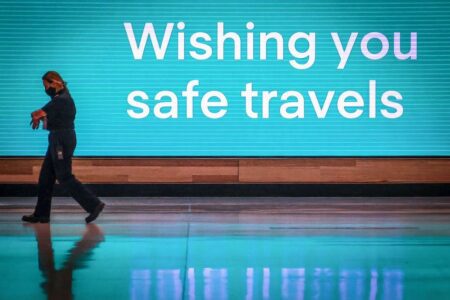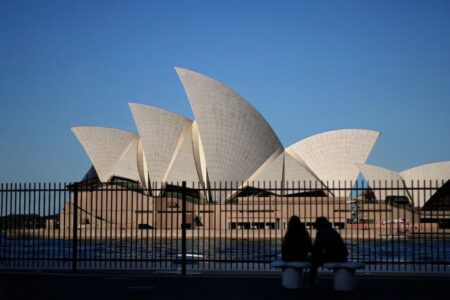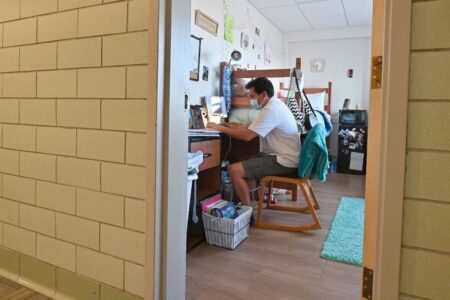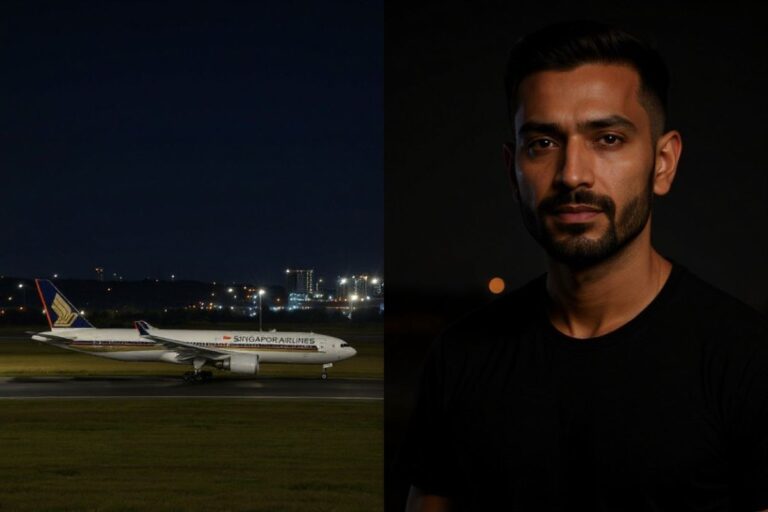
With the Australia-Singapore travel bubble currently underway, many international students in Australian universities are either looking forward to a chance to finally return to campus, or return home. It would facilitate flights between the two countries, similar to the air travel bubble between Australia and New Zealand.
This comes after Singaporean prime minister Lee Hsien Loong and Australian prime minister Scott Morrison spoke in Singapore last week to discuss reinstating “safe and calibrated” travel between the two countries. “We need to prepare the infrastructure and the processes to get ready to do this, and this starts with mutual recognition of vaccination certificates, possibly in a digital form – very likely – and when all the preparations are ready we can start small with an air travel bubble to build confidence on both sides,” Lee said.
So how soon can we expect the Australia-Singapore travel bubble, and who will benefit from it? Here’s what you need to know.
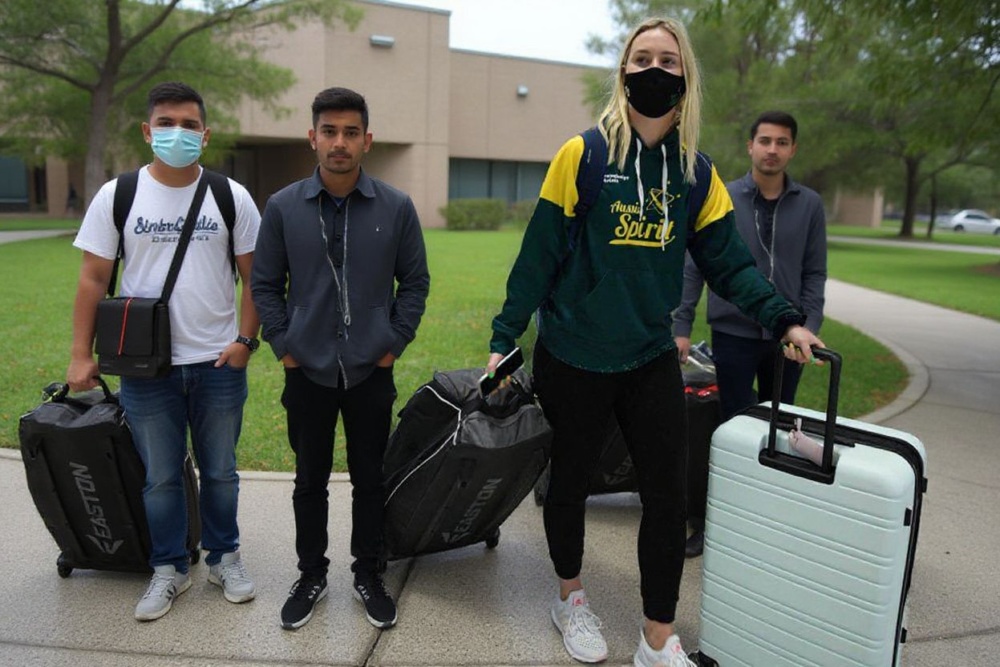 As athletes travel in and out of Australia, international students wonder how much longer they must wait to return to campus.
As athletes travel in and out of Australia, international students wonder how much longer they must wait to return to campus.
Will international students be prioritised?
Early indications point to a resounding yes. The Australian government is cognizant of the numerous campaigns and voices of dissatisfaction from international students over this past month; implementing this travel bubble will be a recognition of the socioeconomic value they bring to the country.
“The international student numbers have dried up, so to see that start again will be important and there are many Australian jobs that hang off that industry,” said Australian defence minister Peter Dutton.
Singaporean students will be the first to benefit, of course. First-year students like Chris Gan from the Australian National University will finally be able to set foot on campus. “I am confident Singaporeans will be able to travel to Australia too,” he said to The Straits Times about the anticipated two-way nature of the arrangement.
Other students will finally be able to resume their studies in Australia, such as University of Adelaide student Shalynn Tsai. Stuck at home, she had to take a leave of absence from her bachelor’s degree in dental surgery as the Australian border remained shut. “It has been very stressful not knowing when or whether we can even continue with our degree courses. With the travel bubble, we can finally go back and resume our studies,” she expressed.
When will the Australia-Singapore travel bubble open?
Make no mistake — the Australia-Singapore travel bubble is still in the nascent stages of planning. Though Morrison says there is “still some time before we reach that milestone,” he has also promised that Singaporean students would be the first cohort to return to Australia “sooner rather than later.”
Australia-Singapore travel will be affected by COVID-19 vaccination and transmission rates in both countries, ensuring that safety is not compromised for either party. “I think once the majority of the population is vaccinated, it becomes much easier for us to contemplate these openings up,” Lee said.
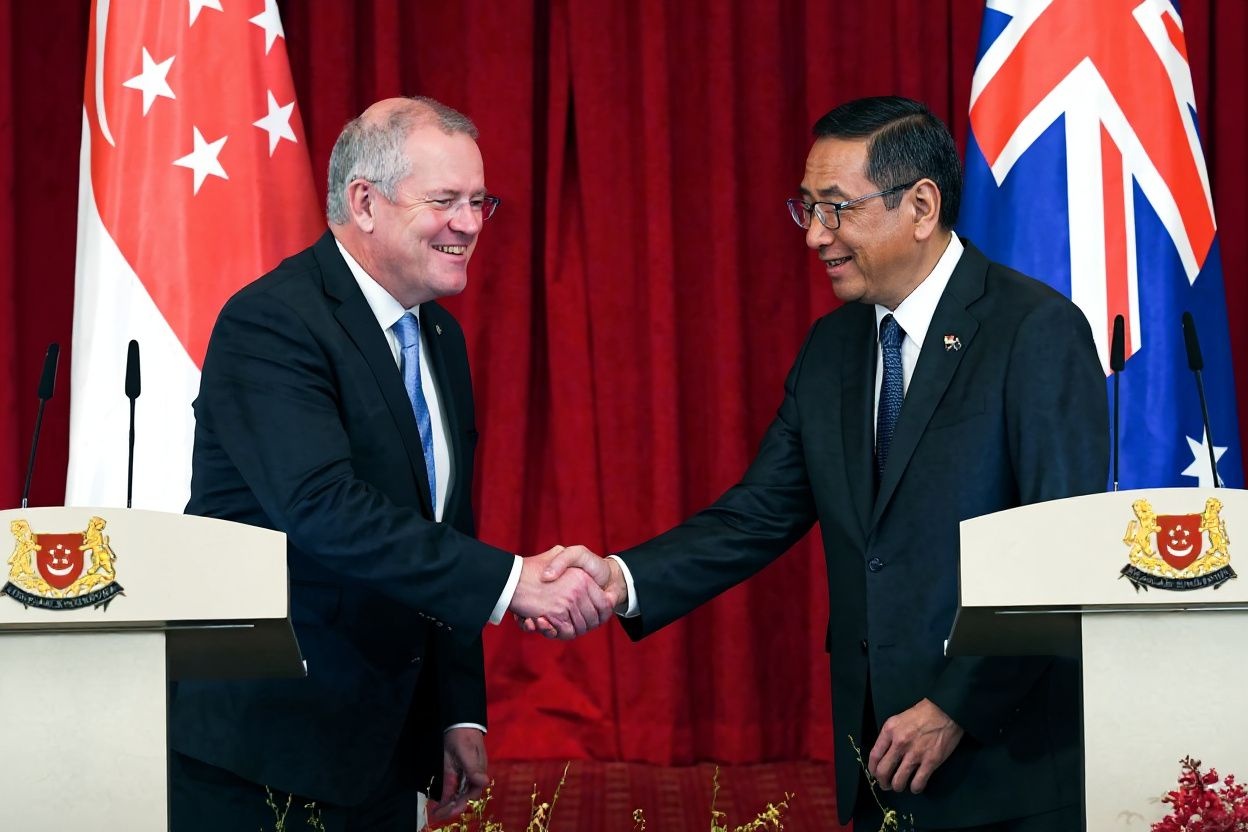 Australias Prime Minister Scott Morrison (L) and Singaporean counterpart Lee Hsien Loong shake hands during a joint press conference at the Istana Presidential Palace in Singapore on June 7, 2019. Source: Roslan Rahman/AFP
Australias Prime Minister Scott Morrison (L) and Singaporean counterpart Lee Hsien Loong shake hands during a joint press conference at the Istana Presidential Palace in Singapore on June 7, 2019. Source: Roslan Rahman/AFP
As of mid-June, Singapore has fully vaccinated 33% of its population, while Australia has only covered 2.6% of its own. “Neither of us has identified a benchmark rate on vaccination when it comes to the decision that would be taken around a travel bubble, but this is something that I think will continually be informed by the medical evidence as time goes on,” Morrison explained.
Singapore has adopted the SafeTravel Pass to ease international travel, while Australia may soon use the IATA Travel Pass. The Australian government is also considering a pilot programme for vaccinated Australians to go overseas from August onwards.
Will international students still be quarantined?
News of the Australia-Singapore travel bubble first surfaced in October 2020, making a reappearance in March 2021 when Australia suggested that Singapore could be a quarantine and vaccination hub for returning students. This arrangement sought to welcome people from third countries into Australia after two-week quarantine in Singapore.
Though there are no details about quarantine requirements, the Australia-Singapore travel bubble would ideally not require one if it only facilitates the movement of vaccinated individuals. “Nevertheless, if there is a need for quarantine, then hopefully it would be more accessible or cheaper for students, as some of us may not be able to afford it,” Queensland University of Technology student Ryan Soh told The Straits Times.








